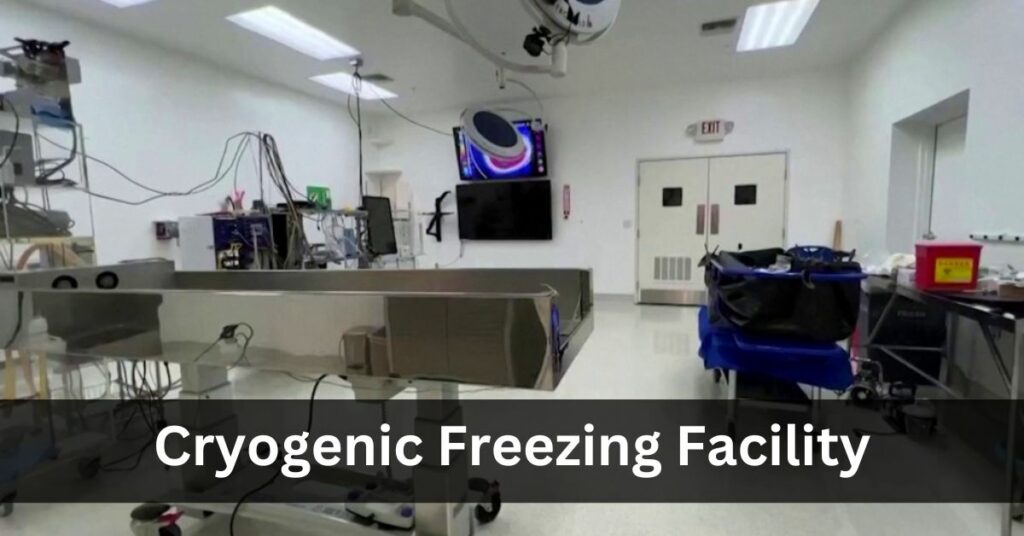The bodies and skulls of 199 people who chose to be cryopreserved in the hopes of being awakened in the future are housed in tanks filled with liquid nitrogen. Many of the “patients,” as the Alcor Life Extension Foundation calls them, were nearing the end of their lives because they had cancer, ALS, or other diseases for which there was no treatment.
Matheryn Naovaratpong, the youngest person to be cryogenically preserved, is one of the patients. As reporters were given a tour of the facility, Max More, the former CEO of Alcor, pointed them to a picture of the girl. “A young Thai girl who has brain cancer.”
She underwent numerous brain surgeries, and despite her parents being doctors, nothing was successful. So they got in touch with us. More details The case of Naovaratpong is one of the few open cases at Alcor. You can also check India Has Approved The World& First Nasal Covid-19 Vaccine, Based On Washington University Technology.
Hal Finney, who passed away from ALS, is another person with a terminal illness. Finney is well known for having received the very first Bitcoin transaction in the world of cryptocurrencies. Paris Hilton is one prominent person who agreed to cryopreservation.
Simon Coldwell, a contestant on America’s Got Talent, officially revealed his membership in 2011 but opted out afterward. Even though rumors had been going around for a long time that Walt Disney was frozen, his own family ended those rumors.
Ted Williams, a legendary baseball player who passed away in 2002, is one of Alcor’s current frozen patients. Cryonics, according to More, is an extension of emergency medicine. We have reached the point where modern doctors have given up.
Technology and medication available today are insufficient to keep you alive. But we’re urging you to give us the patients rather than discard them. As long as it takes for science to catch up and enable people to come back to life and continue living, he said, “We’re going to stabilize them, stop them from getting worse, and hold them.”
One of the company’s 1,392 living members is Natasha Vita-More, a novelist and futurist married to Max Moore. When the pair first met in 1992 at a futurist convention in Los Angeles, they learned they were employees of the same business.
Only Vita-brain More will be cryopreserved because she has agreed to be “neurosuspended,” which is a procedure. According to Vita-More, the best-case scenario is that frozen patients will later cross paths with relatives or pets who were also preserved.
Cryonics is based on anticipation and in the hope that one-day science will be advanced enough for the restoration of cryopreserved humans 🧪
Alcor does not make any promises or guarantees, but that hasn’t stopped people from giving the company their money 💵 pic.twitter.com/bswNf98t0E
— Metro (@MetroUK) October 13, 2022
She continued, “A person who had cancer, ALS, or any other injury or disease might be revived.” The person has a new body that was cloned, a whole-body prosthetic, or their body was reanimated, and they meet up with their friends again.
However, there are doubters in the medical community. Dr. Arthur Caplan, director of the Division of Medical Ethics and a professor of Bioethics at the New York University Grossman School of Medicine in New York City, thinks the idea is unlikely.
In a Zoom interview with the news agency Reuters, he claimed that “the only group that you see getting excited about the potential are folks who are sort of, people who specialize in researching the distant future or those who have a stake in wanting you to spend the money to do it.”
July 8, Scottdale, Arizona. According to reports, baseball legend Ted Williams’s remains are being stored at the Alcor Life Extension Foundation, a cryogenics business in Scottsdale, Arizona, as of July 8, 2002.
After his passing, Ted Williams‘ body was sent to the Alcor Life Extension Foundation. Williams, who passed away on July 5, 2002, and had his body cryogenically frozen, denies that the business decapitated baseball legend Ted Williams’ body, mishandled it, and misplaced DNA samples on August 13, 2003.
The stories were based on accusations by Larry Johnson, a disgruntled worker who had served as the business’s chief operating officer up until this week. Cryonics is based on the idea that science will get better enough one day to let people who have been frozen life again.
Even though Alcor makes no assurances or guarantees, customers continue to donate money to the business. They say freezing a body costs at least $200,000 (£180,000), whereas freezing just the brain costs $80,000 (£72,000).
According to Alcor, most members don’t have that much money. Therefore, they use life insurance with Alcor as the beneficiary to cover the cost. Of course, the facility has several ongoing operating expenses, which, according to Alcor, vary depending on what is being frozen and how long.
The company says it’s pretty clear how much it will cost to keep all of its patients cryopreserved, but it’s less clear how those costs will be split up between different people.
Due to the amounts involved, it will not get into specifics regarding individual costs per patient. But it should go without saying that maintaining your body and brain in a cryogenic state for generations is not inexpensive.
Final Lines
I hope you find our post valuable for you. Many thanks for taking the time to read this! If you appreciate it, please leave a comment and share it with your friends. There are other articles available on Domain Trip.com.

